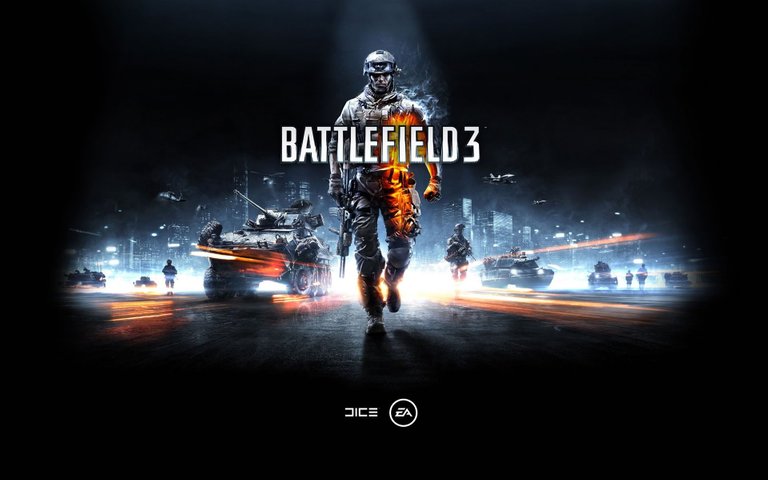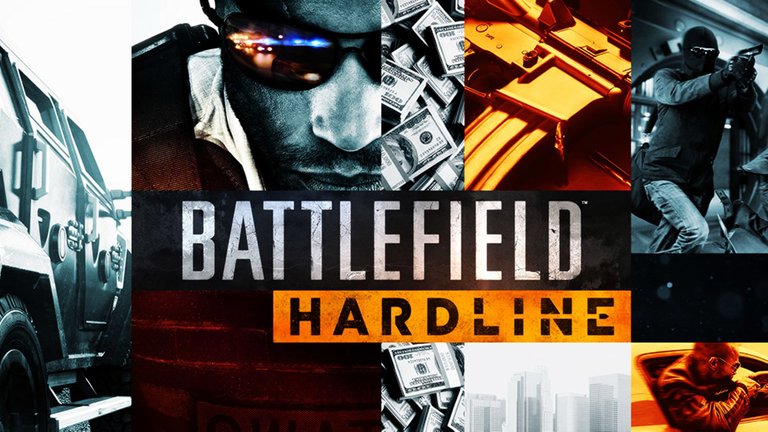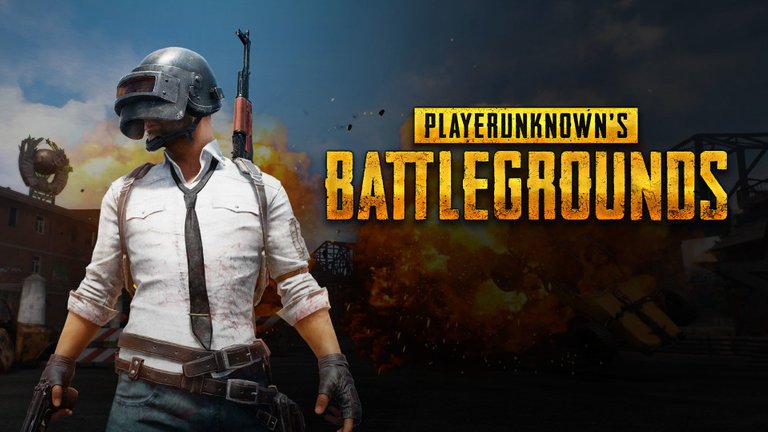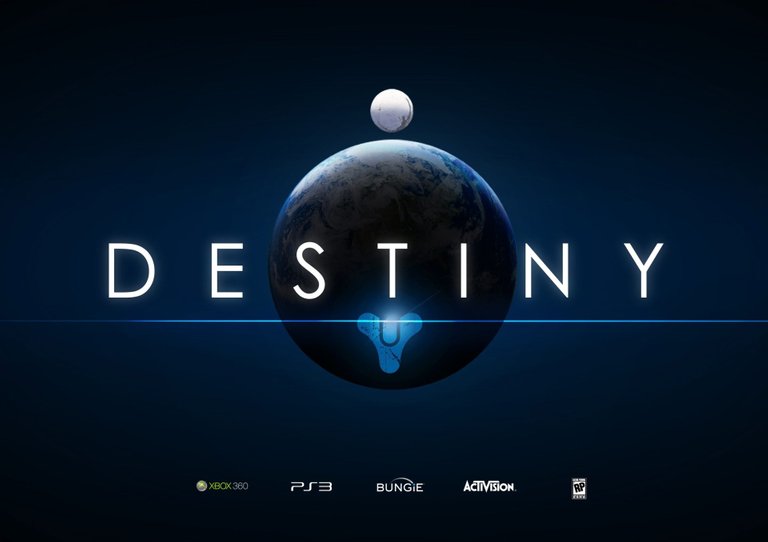Good evening, my dear friends, I hope you had a great weekend. It is unfortunate to think that it is over; in any case, this is the cycle of life. And it's curious at the same time that as we now finish this trilogy of posts on COD, we also see one more episode in the long list of chapters that has the show The Walking Dead, which, by the way, premieres episode in a couple of hours, by FOX.
Anyway, let's get on with what we left last night. We were talking about the big boom that caused COD, and this entire phenomenon, which catapulted the saga to the sky, was thanks to YouTube and the Internet. Now, the podium that COD won during years of accessible and interesting works in 2012 was threatened by the philosophical enemy of the saga: Battlefield 3. His ad was shocking, because the vast majority of COD's fans so far would never have imagined the action EA was promoting in the game it published.

Tank battles across an immense open field, persecutions in armored jeeps, helicopters fleeing jets, tanks filled with C4 crashing into an enemy building and then exploding... In his own way, Battlefield could also offer infinite different options and experiences. This year, the Battlefield 3 release year, was also the year of COD Modern Warfare 3, the closing of the trilogy that opened with the largest and smallest Call of Duty ever created. The enemies were tough, tough to gnaw at, and they were going to go head-to-head, as there was no other game of the same genre on the market that had such prestige and image. Of course, there were also Medal of Honor, Homefront, Halo, and others, but they didn't really fight COD, it seemed more like they resigned themselves to not having their reputation, but they shone equally, and were bought by their fans and the people who were attracted to their ideas.
Battlefield 3 had great realism in its animations, giant maps, as well as a limit of 24 players (consoles) and 64 players (on PC) to fill each map. His technique was to use simulation to create fiction, as he took every kind of soldier from the royal wars (explorer, sniper, demolition, doctor, engineer) to do things in the video game that would never have been done in a real war (taking a fighter and deliberately crashing it into a tank, knowing that the player would reappear on the map).
Instead, COD took more for grabbing fiction, to make it even more impossible, and thanks to its limited number of players and the tiny size of the maps, the fights and skirmishes were one-on-one, not entire teams against entire teams.

What did all this work out? Nothing, because neither Battlefield nor COD could survived the battle. Battlefield then collapsed with two works, which were hardly innovative: BF4 and Hardline. BF4 ended up taking on the role of COD's annual rival, and therefore had no more changes than 3. Hardline, on the other hand, tried to change the focus by producing clashes based on the mechanics of the mythical Counter Strike, but the most loyal and ancient followers of the game came out bounced, as this was not the kind of game Battlefield used to have.
And COD? It’s just the same. After MW3, which turned out to be the worst COD to date, and the second most hated, the saga tried to recover with Black Ops II, and this gave him support, managing to give it a little more interest than it had lost. Then Ghosts would arrive, and the saga would fall in a straight line again. Today the saga, thanks to its latest installments, enjoys a respectable identity, as if it were an old Vietnamese veteran in a nursing home.

In fact, now COD has to try to shine along with other games of the genre, such as Fortnite, PUBG, Destiny 2, Titanfall 2, etc. Fortnite and PUBG present themselves as two fighters in this field, who have entered through the big door and to stay, thanks to their "unique" properties in the genre. Not only have they garnered a massive number of followers, they have succeeded in repeating the phenomenon that COD caused at the time: making the entire Internet, and in particular YouTube and Twitch, focus on them. Right now we have dozens of users uploading huge amounts of content on both, as they are games that allow you to live unique experiences, causes tension in the player, and are even exciting to those who just watch.
Call of Duty was the game that caused a change between 2008 and 2016, but it wasn't meant, of course, to be in first place forever on the podium of the game he leads. However, it had a less bitter ending than the EA saga.
What is COD's real relationship with these other games? The real relationship is partly simple: Evolution. Not only is it a subject that develops in depth in plots such as those of COD Black Ops 1,2 and 3, in terms of technological evolution in warfare, but it is a subject that has to do with the way in which teenagers play and enjoy the works of shooters.
At first, everyone was looking for war. We’re talking specifically about the World War II. Assault Rifles, tanks, trenches, everything related to WW2. Everything would change after 2013, when the genre was reinvented, in order to give the public what they wanted so much.

The first games that offered this were the ones that really succeeded. We have many examples, and in terms of ways of innovating, very different. Destiny arrived with an eternal MMORPG game format, in which constant updates were made to deepen the things that made the game a world in itself. Focused on long-term gameplay, like Minecraft, it provided players with everything they wanted, such as ways to change the avatar's clothes, improve their characteristics, get better weapons....
Titanfall, on the other hand, went more along the side of the arcade battle, making the battlefield an interesting change: joining the battle between humans and robots of the console, as well as, in both cases, the use of jetpacks to jump higher.
This meant that COD had to join the movement, if it wanted to survive. So that's what he did, and the first COD game within this framework was Advanced Warfare, a war in the future. Not the future of Black Ops 2 (2025) but a truly distant future.
Here's the deal: COD was the leader, it gave the guidelines for the environment. When the players got tired, and other works came to change these guidelines, COD had to relegate the title of leader. But it did not die or retire, just remains on the podium. And it's most likely still there for a long, long time. Only time will tell.
I hope you liked this post very much and could understand a little better what makes the saga great, and the details and events that made it fall down little by little. If so, please let me know in a commentary what other topic you would like me to comment on, as well as your opinion about COD.
Have a good night, and a happy start to the week!
Below, if you'd like to visit it, you have the link to my first of two articles about Minecraft.
https://steemit.com/gaming/@rickraven2000/3-things-of-life-and-my-crops-in-minecraft
Source of the images:
https://wall.alphacoders.com/big.php?i=144757&lang=Spanish
https://wall.alphacoders.com/big.php?i=512482&lang=Spanish
https://wall.alphacoders.com/big.php?i=413032&lang=Spanish
https://wall.alphacoders.com/big.php?i=827439&lang=Spanish